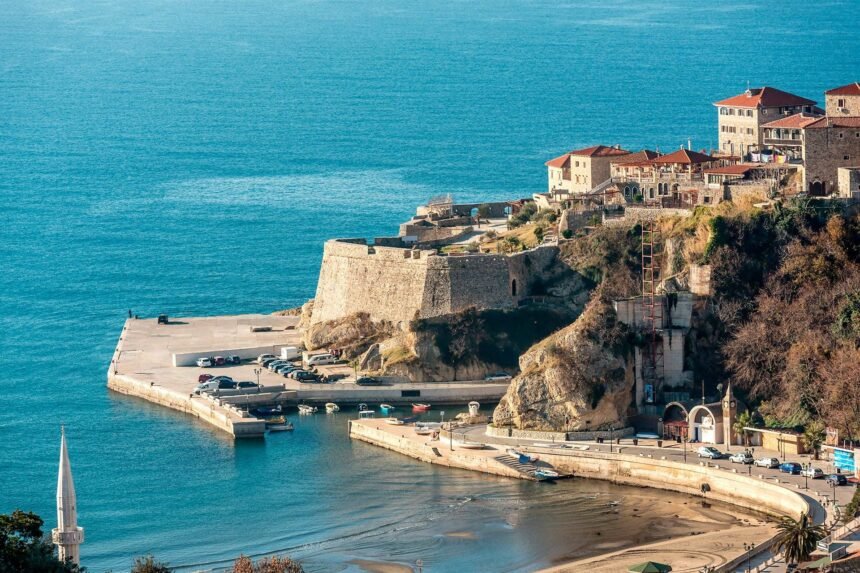The new beach lease regulations in Montenegro, which include tripled rental prices, have sparked fierce debates between local leaseholders and the government. Some ministers have also expressed dissatisfaction, hinting at potential resignations.
The strongest opposition has come from Ulcinj, a predominantly Albanian-populated town in southern Montenegro. Local leaseholders argue that the new prices will make business operations unfeasible, ultimately driving up tourist costs, reports RFE.
Deputy Prime Minister and Minister of Economic Development, Nik Gjeloshaj, stated on February 17 that ministers from the Albanian Forum will reconsider their participation in the government by the end of the month due to this decision.
Despite objections from coastal municipalities and without consulting economists, Prime Minister Milojko Spajić’s government approved the new leasing rules. Minister of Spatial Planning, Urbanism, and State Property, Slaven Radunović, from the Democratic Front, defended the move, arguing that it would impose order in a sector previously controlled by “bandits.”
Radunović claimed that beach rentals in Ulcinj were previously priced at half their actual value. His remarks led to protests from three Ulcinj-based leaseholder associations on February 14, with representatives calling the decision a major economic blow to the city. They also demanded an apology from Radunović for labeling the entire sector as “criminal.”
Ulcinj Mayor Genci Nimanbegu backed the leaseholders, criticizing the government’s move as an act of centralist and anti-urban policy.
The Leasing Controversy
Montenegro’s 300-kilometer coastline is one of its most valuable assets, expected to generate between €15 million and €30 million this year from leases. The public company Morsko Dobro (Maritime Assets), which manages the coastline, announced the lease tender on February 16, allowing participation even for individuals facing legal proceedings.
Minister Radunović defended this decision, stating that it respects constitutional rights and the presumption of innocence. He further claimed that the beach rental sector had been “semi-mafia,” alleging that 30% of past leaseholders had criminal connections but operated through family members.
Local business owners in Ulcinj have strongly refuted these accusations. Xhavid Hoxhiq, from the Ulcinj Beach Owners Association, explained that changes in beach width calculations have artificially inflated rental prices. The new regulations expand the defined beach width from 46 meters to 76 meters, including previously free sections.
With the increased lease prices, local business owners claim profitability will be impossible. For example, a lease that cost €41,000 last year now has a starting price of €115,000. Leaseholder Prelë Shkrela argues that the move deliberately undermines Ulcinj’s beach sector.
“We have a 60-day summer season if the weather permits. No beach can make a million euros in two months, especially with budget-conscious tourists,” Shkrela stated.
Last year, sunbed and service prices in Ulcinj ranged from €20 to €25, significantly lower than other Montenegrin coastal areas.
Government Divisions and Legal Challenges
The controversy has also led to divisions within the government. Ministers from the Democratic Montenegro party abstained from voting on the lease changes, while Deputy Prime Minister Nik Gjeloshaj and Ministers Marash Dukaj and Fatmir Gjeka opposed them.
The Montenegrin Chamber of Commerce and the Association of Municipalities have also sided with the leaseholders.
Meanwhile, debates continue over proposed amendments to the Maritime Assets Law, which would return coastal management to local municipalities. While Prime Minister Spajić has shown openness to the idea, Minister Radunović strongly opposes it, claiming local governments would struggle against criminal influences.
The decision now rests with Montenegro’s Parliament, where the outcome remains uncertain.
Outlook for Ulcinj and Montenegro’s Tourism Industry
The sharp increase in beach rental prices has raised concerns about the future of tourism in Ulcinj, a city that relies heavily on seasonal visitors. Many business owners fear that higher costs will push tourists toward more affordable destinations, harming the local economy.
With growing political friction and strong resistance from leaseholders, the government may be forced to reconsider or modify its approach in the coming weeks.







